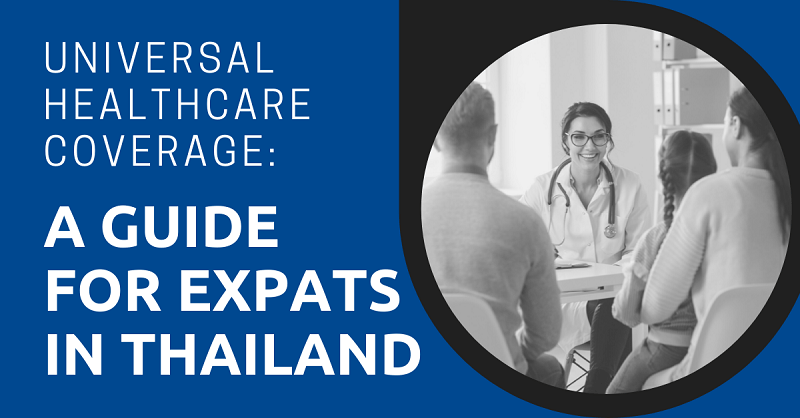
Let’s face it, you’re never that far away from a hospital visit in Thailand. Road safety standards aren’t always up to par with the West and street food could leave you with a serious bout of food poisoning.
But despite the country’s low cost of living, medical care doesn’t always come cheap.
Luckily for working and non-working expats in Thailand, there is usually a way to get health coverage so those medical emergencies don’t drain your bank account.
In this guide, we’ll take an in-depth look at Thailand’s three universal healthcare systems, reveal the one system that will cover you if you’re working in the country, and explain why you might want to get private health insurance — even if you are covered by your employer.
"*" indicates required fields
Disclaimer: This article may include links to products or services offered by ExpatDen’s partners, which give us commissions when you click on them. Although this may influence how they appear in the text, we only recommend solutions that we would use in your situation. Read more in our Advertising Disclosure.
Contents
Universal Healthcare in Thailand
Universal healthcare has been available to Thai citizens since 2002, when then-Prime Minister Thaksin Shinawatra introduced the Universal Coverage System (UCS), more commonly known as the 30-Baht Card because of the 30 baht co-payment the patient had to provide.
In total, there are three universal coverage systems in Thailand
Civil Servant Medical Benefit System (CSMBS)
This coverage system is available to all government employees, totaling around 7 percent of the population.
Since expats are barred from government positions, we don’t really need to focus too much on this one.
Social Security System (SSS)
As in many other countries, private employees in Thailand are covered by a Social Security System (SSS) funded by monthly deductions. Around 12 percent of the population is covered by the SSS, as are some expats.
Universal Coverage System (UCS)
Far and away the largest of the three, the Universal Coverage System (UCS) covers the remaining 80 percent of the population not covered by the above systems. But it’s only available to Thai citizens.
UCS care is comprehensive and free at point of service. Thai citizens can register for a Card for Care under the system, which entitles them to both inpatient and outpatient care, rehabilitation, dental care, medical supplies, and more.
What’s Available to Expats?
Unfortunately for us expats, both the CSMBS and UCS are off-limits. So what options are available to expats when it comes to healthcare?
Here are a few:
Social Security
As stated above, all employees in Thailand including expats are covered by the Social Security System.
Contributions to the system are taken out of your paycheck every month, and you’re free to claim healthcare under the SSS at a designated hospital.
How the Thai Social Security System Works
By law, all Thailand employees including expats are obligated to contribute around 5 percent of their monthly salary to the Social Security System, up to a maximum of THB750 per month.
This money will be automatically deducted from your salary every month by your company’s finance department.
When you start working for a Thai company, they’ll contact the social security office and put in an application for you. By law this must be done within 30 days of starting your contract.
You may be asked at this stage if you have any preferences with regards to hospitals, but more likely than not you’ll simply be assigned one by the company. Once everything’s been processed, you can begin claiming.
For more info, read our guide to Thailand’s Social Security System for expats.
What’s Covered
Your social security contributions can be paid toward the following:
Medical Care
You’re entitled to free healthcare at your registered hospital for both emergencies and pre-existing conditions.
Your coverage includes examination and diagnosis, treatment and rehabilitation, medical supplies, ambulance trips. and any other essential expenses.
You’re also entitled to a free basic checkup once a year, covering tests for blood pressure, blood sugar levels, and cholesterol.
Dental Care
You can claim up to THB900 per year for dental care, including fillings, extractions, and cleanings.
Check beforehand if your dentist is already registered with the social security office. If not, you may have to fill out a reimbursement form. Make sure you keep the receipts.
Maternity Care
If you’ve contributed to the social security fund for at least five of the last fifteen months, you should also be entitled to maternity care.
Coverage includes contributions toward exams and prenatal care, treatment, medicine, child delivery up to THB15,000, and nursery care.
Private Health Insurance
Most expat employers in Thailand will provide health insurance for their staff, although depending on your employer it can be pretty basic, covering only accidents.
Expats who aren’t here to work or who aren’t satisfied with their company health insurance can take out private health insurance, although this can be costly.
Non-working expats such as retirees aren’t covered by the SSS and aren’t eligible for care under the UCS or CSMBS.
So for these people — and also for those who would prefer private hospitals over government hospitals — the only options are paying up front or getting private health insurance.
Private insurance coverage depends on what you’re willing to pay. Cheaper plans will only cover the basics such as medical treatment, medication, ambulance fees, etc. The more expensive plans will cover just about anything.
Some offshore insurance policies will even cover things like evacuations to other cities or even countries in case of emergencies that can’t be taken care of locally.
For more info, check out our guide to health insurance for expats.
When it comes to choosing a health insurance policy, you have two options:
Domestic Insurance
Domestic insurance plans are those you take out with a local insurance company. Generally, you can find cheaper local plans than international offshore plans.
However, coverage can be a little limited. Expect more limits on how much they’re willing to cover, as well as exclusions for risky behavior like motorcycle accidents.
On the bright side, using a local insurer means less paperwork for both you and the hospital.
Offshore Insurance
Offshore insurance — also known as expat insurance — offers coverage across the world with the exception of the U.S.
Getting offshore insurance is handy for frequent travelers, as you can expect coverage almost everywhere you go, not just in Thailand or your home country.
Coverage limits tend to be a little higher than domestic insurance plans, too, meaning you get a little more bang for your buck and lower co-payments.
On the downside, it involves more paperwork every time you need care.
Paying out of Pocket
Healthcare in Thailand is relatively inexpensive, especially compared to places like the U.S., and depending on your financial status it’s often easy enough to pay up-front for the more routine procedures.
However, it should be pointed out that this is rarely the most sensible option because a more serious procedure could potentially bankrupt you.
Private Vs. Public Care
With such a robust social security system in place, should working expats taking out private insurance policies?
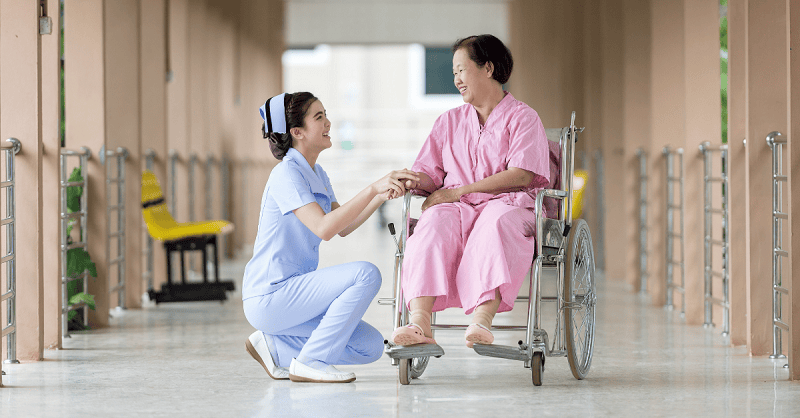
Depending on your circumstances the answer may be yes, especially as most employers in Thailand will set you up with a private insurance policy to sweeten the contract anyway.
Let’s break down the advantages and disadvantages of each.
Public Care
Here are the pros and cons associated with public healthcare.
Advantages
Far and away the biggest advantage of universal healthcare is the cost.
Even a cheap private insurance policy for a healthy young person is likely to set you back between THB2,000 to THB3,000 per month, and that’s not even taking into account things like international coverage.
Social security maxes out at THB750, and it’s something you have to pay into anyway.
Moreover, social security covers more than just medical care. You can claim child benefits, disability benefits, a pension, and even compensation if you happen to die on the job.
Granted many of these are little more than token gestures that won’t give you much more than a slight bump every month, it’s a nice gesture compared to how much each of these would cost in the private sector.
Disadvantages
Unfortunately, you can expect to have to deal with long waits, briefer appointments, and a much more basic standards of care at many government hospitals — it’s just an inevitable fact of life.
That’s not to say that government hospitals are awful. In fact, you might be surprised at the quality of the care that’s available despite all the problems they face.
But to get top-quality, personalized healthcare you’re going to need to pay for it.
Also, most expats will quickly become acquainted with the Thai bureaucracy’s love of paperwork, and the SSS is no different.
Getting everything covered can be a time-consuming and arduous process, especially compared to simply scanning your insurance or credit card and walking out at private hospitals.
Private Care
Here are the pros and cons associated with private healthcare.
Advantages
As the old saying goes, you get what you pay for. And the more you’re willing to pay, the better the medical care you can get.
Private hospitals in Bangkok like Bumrungrad and Samitivej are among the best in the world and are popular destinations for medical tourism, offering luxurious surroundings and excellent standards that simply wouldn’t be possible at a government hospital.
Although you’d be surprised at what your social security covers you for, for specialized treatment you’re likely going to have to rely on a private hospital.
Even the basics such as annual checkups will be much more thorough at a private hospital.
Disadvantages
If you don’t have an extensive, bells-and-whistles insurance policy you can expect to pay a lot more at most of Thailand’s private hospitals than you would at a government hospital.
While it’s possible to get healthcare of a high-standard for far more reasonable prices than in many other countries, it will still hit your pocket harder.
Even with a good insurance policy, it’s always possible that you’ll have the misfortune to get into a major accident or contract a long-lasting, lingering disease that simply exhausts your insurance coverage.
For incidents like these, you can expect the already high cost of private care to skyrocket.
Now, on to You
It might surprise some expats to know that Thailand has three robust universal healthcare systems, one of which they can make use of if they’re working here legally, of course.
While the UCS and CSMBS may be off-limits, working expats are covered by the SSS that they pay into every month.
Granted, healthcare under the SSS may not reach the high standards of some of the country’s famous private hospitals, and claiming back your treatment involves a lot of fiddly paperwork.
However, for sudden unexpected emergencies or under-the-knife surgeries, the SSS could potentially be a lifesaver.



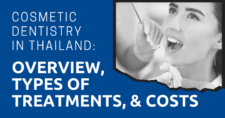
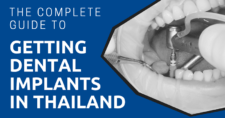

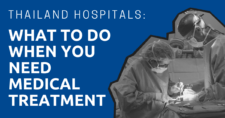
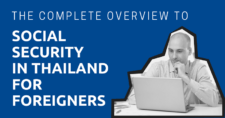
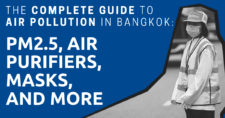
How am I supposed to get the card for care? You left zero information about this.
If you are working in Thailand, you will get the SSO automatically. It’s required by law. In case it’s a 30-baht scheme, you can’t get it since that’s for Thais only.